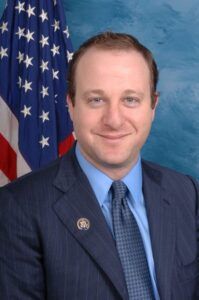Politics, business climate and economic prosperity

The euphoria of the November Colorado “blue wave” election is evident in pronouncements from Gov. Jared Polis, legislative leaders, legislators and allies. Elections have consequences, as the saying goes. Clearly that means a big step left for Colorado.
In the early days of a new governorship and legislative majority, of course, there is more talk than results so far. It remains to be seen what this new era means to business and the state’s economy.
That impact will vary from business to business depending on the policies being proposed and their direct impacts on specific industries and businesses. For some, this change is nirvana; for others it’s the apocalypse.
SPONSORED CONTENT
Empowering communities
Rocky Mountain Health Plans (RMHP), part of the UnitedHealthcare family, has pledged its commitment to uplift these communities through substantial investments in organizations addressing the distinct needs of our communities.
Either way, for the time-being, a cloud of uncertainty looms.
I heard that sentiment of uncertainty expressed in a meeting of business leaders in Northern Colorado a couple of weeks ago where they were worrying about the state’s business climate based on the big ticket, regulation-heavy agenda being espoused by state leaders.
Some will argue that Colorado’s progressive bent will attract investments and jobs from progressive-minded companies. Others believe the opposite. Only time will tell.
Business climate is defined as the extent to which the political and policy environments of a particular locale are seen as threatening, burdensome or supportive of business.
The implication is that areas with a bad business climate, especially compared to other more favorable or competitive places, will be shunned by primary businesses for capital investments and jobs.
Major cost factors affecting business climate are land, labor, taxes and regulations. Non-cost factors include quality of life and political attitudes toward business.
As the governor and legislature begin to lean into their agenda, we’re hearing about major initiatives: full-day kindergarten, universal health care, paid parental leave, 100 percent renewable energy, and increased regulations on oil and gas to name a few. Then there are the lingering unsexy issues like fixing the state’s highways and transportation system, properly and equitably funding K-12, and supporting higher education. The price tag for all of this is massive.

Gov. Polis prides himself on being creative, innovative and solution-oriented. He certainly has a target-rich environment at which to aim his skills.
As he and the new legislature spool out their proposed solutions to things on their agenda, the business climate factors cited above are good to keep in mind. For each new executive order or proposed law ask yourself: ‘Does this make it easier or harder for me to hire people? What will this cost our company in terms of fees and taxes? Does this add to our regulatory burden or lessen it? How does this impact the cost of real estate? Will housing be more affordable or less affordable for my employees? What does this action say about our elected leaders’ attitude toward business?’
Eventually, the accumulation of those political and legislative actions will be reflected in the state’s economy.
In the meantime, what can you do as a businessperson to stay informed during this time of transition? Here are a few suggestions:
- Subscribe to BizWest (www.bizwest.com/subscribe) and then sign up for its daily email news briefs. BizWest’s focus is business news, but it does a good job of monitoring political and legislative developments that impact business.
- Watch for “meet your legislature” town hall announcements and attend these updates with your legislators.
- Weekly visit ncla.biz. NCLA stands for the Northern Colorado Legislative Alliance. The group includes the chambers of commerce in Fort Collins, Greeley and Loveland, Upstate Colorado Economic Development, and One NOCO Economic Development. Look at the “Under the Dome” and the “Tracking Report” tiles on the bottom of the front page.
- Follow our lobbyist Sandra Solin on Twitter. Her handle is @CapSolSolin
Business has a vested interest in the big issues impacting the business climate of the state. We need to be paying close attention and making our views heard by state officials.
David May is president and CEO of the Fort Collins Area Chamber of Commerce.
The euphoria of the November Colorado “blue wave” election is evident in pronouncements from Gov. Jared Polis, legislative leaders, legislators and allies. Elections have consequences, as the saying goes. Clearly that means a big step left for Colorado.
In the early days of a new governorship and legislative majority, of course, there is more talk than results so far. It remains to be seen what this new era means to business and the state’s economy.
That impact will vary from business to business depending on the policies being proposed and their direct impacts…
THIS ARTICLE IS FOR SUBSCRIBERS ONLY
Continue reading for less than $3 per week!
Get a month of award-winning local business news, trends and insights
Access award-winning content today!

